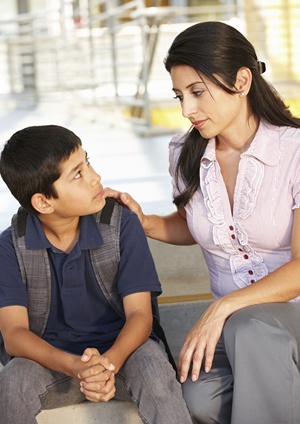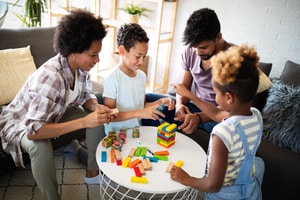How to Help Kids Develop Healthy Coping Mechanisms
Youngsters and adults are similar in that they are capable of feeling a wide range of emotions. They frequently experience fear, sadness, anxiety, or rage. Kids lack self-control. However, adults are able to manage and comprehend those emotions. They have no idea how to deal with pressure or overcome obstacles.
Therefore, it’s critical to stop children from acquiring harmful behaviors and to help kids develop healthy coping mechanisms. In order to lay the groundwork for a robust and well-adjusted adult, these coping techniques are crucial. So, to assist kids in creating healthy coping mechanisms, we are going to give parents some advice and techniques.
What Are Coping Mechanisms?
We’ve all experienced uncomfortable feelings at some point, so learn coping mechanisms as a way to manage stress and get through unpleasant circumstances. Coping strategies can be divided into two categories: good and harmful. Healthy coping strategies include solving problems, getting support, and exercising to help people properly manage their stress without hurting themselves or others.
However, using drugs, becoming aggressive, or avoiding situations are unhealthy coping strategies that might have unfavorable effects. Thus, it is essential to start teaching children good coping strategies at a young age. They must have the resources necessary to successfully navigate the obstacles of life. Children who receive early assistance in developing these abilities will grow resilient and emotionally intelligent, which are essential for their overall well-being.

It is essential to help kids develop healthy coping mechanisms.
Identifying Stressors in Kids
The first step in assisting children in creating appropriate coping strategies is identifying the sources of stress. A few typical stressors for kids are changes in their surroundings, such as moving to a new house or going through a family breakup, social expectations, academic pressures, and familial relationships. Peer pressure and overscheduling are some factors that might make kids feel anxious.
To spot stressors in their children’s conduct, parents should be watchful and aware of their actions. They must be mindful of the warning symptoms of stress in children, which can take many different forms. They need to be alert to mood swings, sleep issues, cessation of previously enjoyed activities, inexplicable medical complaints such as headaches or stomachaches, and heightened irritation or violence.
Younger children, on the other hand, use tantrums, clinginess, or behavioral regression as ways to communicate their stress. Teens and older children who experience stress may withdraw from others, do worse in school, or act dangerously. As a result, parents need to provide a secure and encouraging atmosphere where kids can openly communicate their emotions and worries.
Open Communication Is Key
Open communication is one of the finest methods to support your child and is essential in assisting them in the development of healthy coping skills. Children will be more willing to talk about their problems if you actively listen to them and validate their feelings. Children are more likely to express their emotions and ask for help when they need it if they feel heard and understood.
Personable Parents
Parents need to be personable and nonjudgmental to promote an atmosphere where children feel comfortable expressing their feelings. Speak children’s love language, which can be expressed through acts of service, physical touch, affirming remarks, or quality time. This is one powerful strategy. In this way, parents can encourage emotional bonding and help kids feel that their thoughts and feelings are acknowledged and understood.
Supportive Parents
Children will be better able to express their ideas and sentiments when you ask open-ended inquiries about their daily experiences and feelings. Parents must support their children’s feelings and listen intently without interrupting them. Active listening is also very important. Parents should also talk about their emotions and help kids develop healthy coping mechanisms for stress. Therefore, children will know that open communication about emotions is normal and will also have role models for managing stress.

Active listening is crucial, and parents must listen attentively without interrupting.
Physical Activity Beats Stress
Physical activity is essential for assisting children in developing healthy coping strategies and stress management skills. Frequent exercise improves mental health and mood. Kids can decompress and feel less anxious by engaging in activities like biking, dancing, sports, or even just going for walks. Physical health amplifies happiness, and thus, it is easier for kids to cope with everyday challenges. As a result, parents should support their children in discovering their passions and making physical activity enjoyable and a regular part of their day.
Teaching Relaxation Techniques
The US has been great at developing unique approaches to promoting relaxation and wellness. Notably, Arkansas has been pioneering in the field of relaxation techniques with initiatives such as the Student Wellness Advocacy Group (SWAG). This program aims to educate students about health and wellness, providing them with tools to discuss and improve their health.
Teaching kids relaxation techniques is crucial to helping them cope with stress. These include easy techniques that can help kids relax, like deep breathing, mindfulness, and meditation.
Given the state’s proactive stance on integrating wellness into educational frameworks, there’s been a surge of different programs to rely on. Parents looking for appropriate meditation and relaxation techniques can turn to renowned facilities that treat anxiety disorders and other conditions. These treatment centers offer both mainstream and alternative treatment options, providing various techniques to help kids cope, such as yoga, mindfulness, art therapy, and music therapy—whatever works best for your family. Such initiatives are proving vital as a model for promoting children’s emotional health nationwide. Regular practice of these strategies can aid children in developing effective stress-reduction and emotional balancing tools.
Encourage Creative Outlets
Encouraging creative outlets in kids is one of the best methods to help them express their feelings and cope with stress. Kids can manage their emotions through productive outlet activities such as painting, drawing, writing, or playing an instrument. In addition to offering a mental retreat, engaging in creative pursuits enhances one’s self-worth and problem-solving abilities. Parents are responsible for giving their children the chance to experiment with various creative mediums. In addition to fostering creativity, this will keep kids safe, providing a constructive outlet for their feelings and a decompression method.

Parents are vital in providing emotional support, but kids must also have support from friends and family.
Having a Support System
Although parents play a crucial role in offering emotional support, kids also need to have a network of friends and family who can help them. Parents should encourage their children to retain close ties with friends, neighbors, and relatives to help them develop healthy coping skills. They can all serve as extra resources of consolation and guidance for children. Engaging children in sports teams or community events can help them feel supported and like they belong.
The Takeaway
For children to be emotionally and mentally healthy, it is crucial to help kids develop healthy coping mechanisms. In addition to understanding pressures, parents should nurture open communication, physical activity, creative outlets, and a solid support network. These coping strategies will provide children with the tools they need to deal with the difficulties of life. They will also assist children in developing resilience, emotional intelligence, and stress management.




